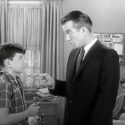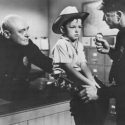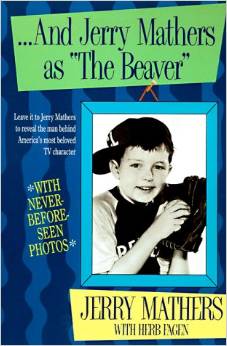 There may not be too many people using Google to ask “Who was Edward Hilgemeier?” but for those few who are wondering, you’ve probably watched the Robert Redford directed film Quiz Show (1994) or a documentary on the quiz show scandals of the 1950s.
There may not be too many people using Google to ask “Who was Edward Hilgemeier?” but for those few who are wondering, you’ve probably watched the Robert Redford directed film Quiz Show (1994) or a documentary on the quiz show scandals of the 1950s.
The Quiz Show movie and quiz show scandals themselves may never have exisited if not for a part time nightclub comedian/struggling actor from Indianapolis named Edward Hilgemeier. Little is known of Edward Hilgemeier other than what one can glean from books like History of the Mass Media in the United States: An Encyclopedia by Margaret A. Blanchard, Television Game Show Hosts: Biographies of 32 Stars by David Baber, Naptown Memories: One Boy’s Life Growing Up in Indianapolis, 1930s & 1940s by Raymond Featherstone, Jr. and a magazine article from the September 15, 1958 issue of Life Magazine. From those sources we find his occupation listed seperately as a part-time nightclub comedian and a small time actor. He was raised in Indianapolis where his father ran a pork packing firm.
Edward Hilgemeier’s fifteen minutes of fame came about in 1958 when he was backstage on the Dotto game show set (a game show in which contestants had to guess the subject of a partially drawn dot to dot picture) where he was a stand by contestant. He found a notebook for a woman named Marie Winn who was at that very moment of finding the notebook, on stage as a contestant. In the notebook, Hilgemeier found answers to quiz questions and pictures that were to be used on the show that day.
In the episode, the young and attractive Marie Winn (a returning champion, her second day on the show) takes on an older woman, dressed in traditional Native American clothing, from Oklahoma, named Yeffe Kimball. The defeat of Yeffe Kimball didn’t take too long as can be seen in the video below:
After Yeffe Kimball left the stage, a still surprised Edward Hilgemeier confronts her with the notebook filled with answers. The two went to the producers crying foul and the producers agreed to pay them money to settle their problem and keep the rigging of the game show quiet. Yeffe Kimball was offered $2000 and Edward Hilgemeier was offered $500. They refused to settle for those amounts. The offers were made without the knowledge of either contestant (or standby contestant as was the case with Hilgemeier), just like when contestants were in sound proof booths on Twenty One. Eventually, the producers agreed to give Yeffe Kimball $4000 and Edward Hilgemeier $1000 and that amount went up to $1500 for Hilgemeier after one more meeting. Edward Hilgemeier eventually took his complaints to the New York Post and later to the district attorney.
On August 7, 1958, one week before Dotto was canceled by CBS, Hilgemeier went to the offices of Colgate-Palmolive, the sponsors of Dotto, not to ask for more money, but to ask that the gossip spread about him in the entertainment industry stop, as it was hurting his chances at obtaining acting jobs.
The revelation by Edward Hilgemeier was only the beginning of the quiz show / game show scandals. For lovers of modern day game shows, the possibility of rigging seems impossible. How could Alex Trebek allow such a thing to ever happen on Jeopardy? The answer is, he wouldn’t, or at least we hope not. Maybe one day, Edward Hilgemeier will be an answer on Jeopardy in the Classic Game Show category for $400:
“He was never a contestant on a 1950s game show but his backstage discovery changed the world of 1950s television.” Ding, ding, ding, I have the answer Alex….”Who was Edward Hilgemeier?”








